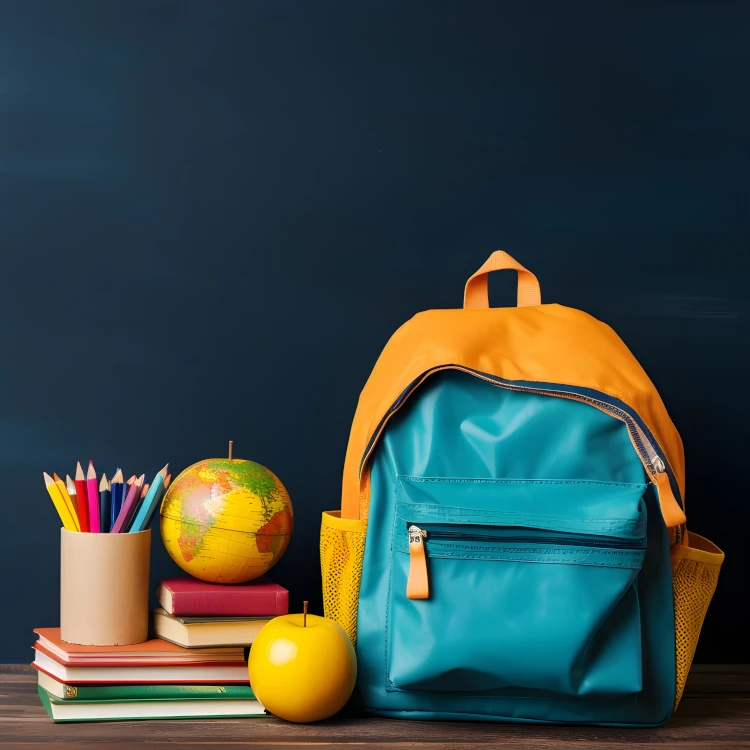Smooth Sailing: A Guide to Transitioning Back to School-Year Routine During Summer

As the lazy days of summer roll in, the idea of transitioning back to a school-year routine might seem like a daunting task. However, with a bit of planning and a gentle approach, you can make the shift seamlessly, setting the stage for a successful start to the academic year. Here’s a guide to help you navigate the transition and make the most of the remaining summer days: 1. Gradual Wake-Up Calls Start adjusting sleep schedules gradually. Begin by setting the alarm 15 minutes earlier each day until you reach the desired wake-up time for the school year. This gradual approach helps the body and mind acclimate to the earlier morning routine. 2. Create a Daily Schedule Structure is key when transitioning back to a school-year routine. Create a daily schedule that includes designated times for meals, study sessions, and recreational activities. Having a routine helps establish a sense of normalcy and predictability. 3. Reintroduce Learning Activities Rekindle the learning spirit by incorporating educational activities into the daily routine. This could include reading books, engaging in educational games, or exploring educational apps. Keep it light and enjoyable to maintain a positive association with learning. 4. Set Goals and Expectations Discuss expectations for the upcoming school year with your child. Establish academic and personal goals, and emphasize the importance of a positive mindset. This conversation can help create a sense of purpose and motivation. 5. Organize School Supplies Use the summer break to get a head start on school preparations. Organize school supplies, purchase any necessary items, and create a designated study space. Having everything in order reduces last-minute stress as the school year approaches. 6. Reintegrate Bedtime Routines Reinstate bedtime rituals that may have been relaxed during the summer. Whether it’s a calming bedtime story, gentle music, or a warm bath, these routines signal to the brain that it’s time to wind down and prepare for restful sleep. 7. Family Calendar Create a family calendar that includes important dates for the upcoming school year. This could include orientation days, extracurricular activities, and project deadlines. Having a visual reference helps everyone stay on the same page. 8. Encourage Independence Foster a sense of independence by encouraging your child to take on responsibilities related to the school routine. This could include packing their own backpack, organizing school materials, and managing their time effectively. 9. Celebrate the Transition Make the back-to-school transition a positive experience by celebrating it. Plan a special family outing or a back-to-school dinner to mark the occasion. Creating positive associations can make the transition more enjoyable for everyone involved. 10. Flexibility and Patience Understand that transitioning back to a school-year routine is an adjustment for the entire family. Be patient and flexible, allowing room for adaptation. Celebrate small victories and provide support as needed. By approaching the transition with a thoughtful and gradual mindset, you can turn the back-to-school process into a smooth and positive experience for both you and your child. Embrace the remaining days of summer while laying the foundation for a successful start to the school year.
Navigating the Seas of Vacation Travel: A Guide to Taming Stress and Enjoying the Journey

As the excitement of vacation approaches, so does the potential for travel stress. From packing woes to navigating crowded airports, the journey to your dream destination can sometimes feel like a hurdle rather than an adventure. Fear not! With a bit of preparation and a positive mindset, you can transform your travel experience from stressful to seamless. Here’s a guide to help you deal with vacation travel stress and make the most of your journey: 1. Plan Ahead The key to a stress-free vacation begins with meticulous planning. Create a checklist of essential items, make reservations in advance, and familiarize yourself with the travel itinerary. Having a well-thought-out plan can alleviate last-minute panic. 2. Pack Strategically Packing can be a significant source of stress. Start packing early and make a checklist of items you’ll need. Consider the weather at your destination and pack accordingly. Roll clothes to save space, and use travel-sized containers for toiletries. 3. Arrive Early Whether it’s a flight or a road trip, arriving early can spare you the anxiety of rushing. Allow extra time for unexpected delays, security checks, and traffic. Early arrival provides a buffer, ensuring a smoother start to your vacation. 4. Entertainment and Comfort Long journeys can be tedious, so pack entertainment essentials. Bring a good book, download movies, or create a playlist. Additionally, pack items that enhance comfort, such as a neck pillow, blanket, or snacks to keep you energized. 5. Stay Hydrated and Well-Fed Dehydration and hunger can exacerbate stress. Keep a water bottle handy and pack nutritious snacks. If traveling by plane, be mindful of in-flight meal times, or bring your own snacks to avoid relying solely on airline offerings. 6. Mindful Breathing and Relaxation Techniques When stress levels rise, take a moment to practice mindful breathing. Inhale deeply, hold for a few seconds, and exhale slowly. Relaxation techniques can help calm nerves and make the travel experience more enjoyable. 7. Stay Connected but Set Boundaries While staying connected is essential, set boundaries for work-related communication during your vacation. Inform colleagues and clients of your limited availability, allowing you to truly unwind without the constant ping of emails. 8. Flexibility is Key Understand that not everything will go according to plan. Flight delays, traffic jams, and unexpected detours are all part of the travel experience. Embrace flexibility, go with the flow, and find the silver lining in unexpected situations. 9. Utilize Travel Apps Take advantage of travel apps that provide real-time updates on flights, traffic, and accommodation. These apps can be invaluable for navigating through unforeseen challenges and keeping you informed throughout your journey. 10. Positive Mindset Approach your vacation with a positive mindset. Focus on the excitement of the destination rather than the stress of the journey. Remind yourself that the travel experience is an integral part of the adventure, and each step brings you closer to your dream vacation. By incorporating these tips into your travel routine, you can minimize stress and maximize the enjoyment of your vacation. Remember, the journey is just as important as the destination, so embrace the adventure and savor every moment along the way. Safe travels!
5 Games Kids Can Play While Traveling

Games can be a fun and effective way to help develop executive function skills in children. Many games require planning, organization, and the ability to adjust strategies as needed, which are all important executive function skills. Games also help children develop working memory, attention, and self-regulation, as they need to remember the rules, pay attention to their opponents, and manage their emotions. Additionally, playing games in a social setting can help children develop social skills, such as turn-taking, collaboration, and communication, which are also important for success in school and life. Overall, playing games can provide a fun and engaging way for children to practice and improve their executive function skills, while also promoting social and emotional development. If you would like more ideas, visit our Parent Resources.
Spanish Summer Club



